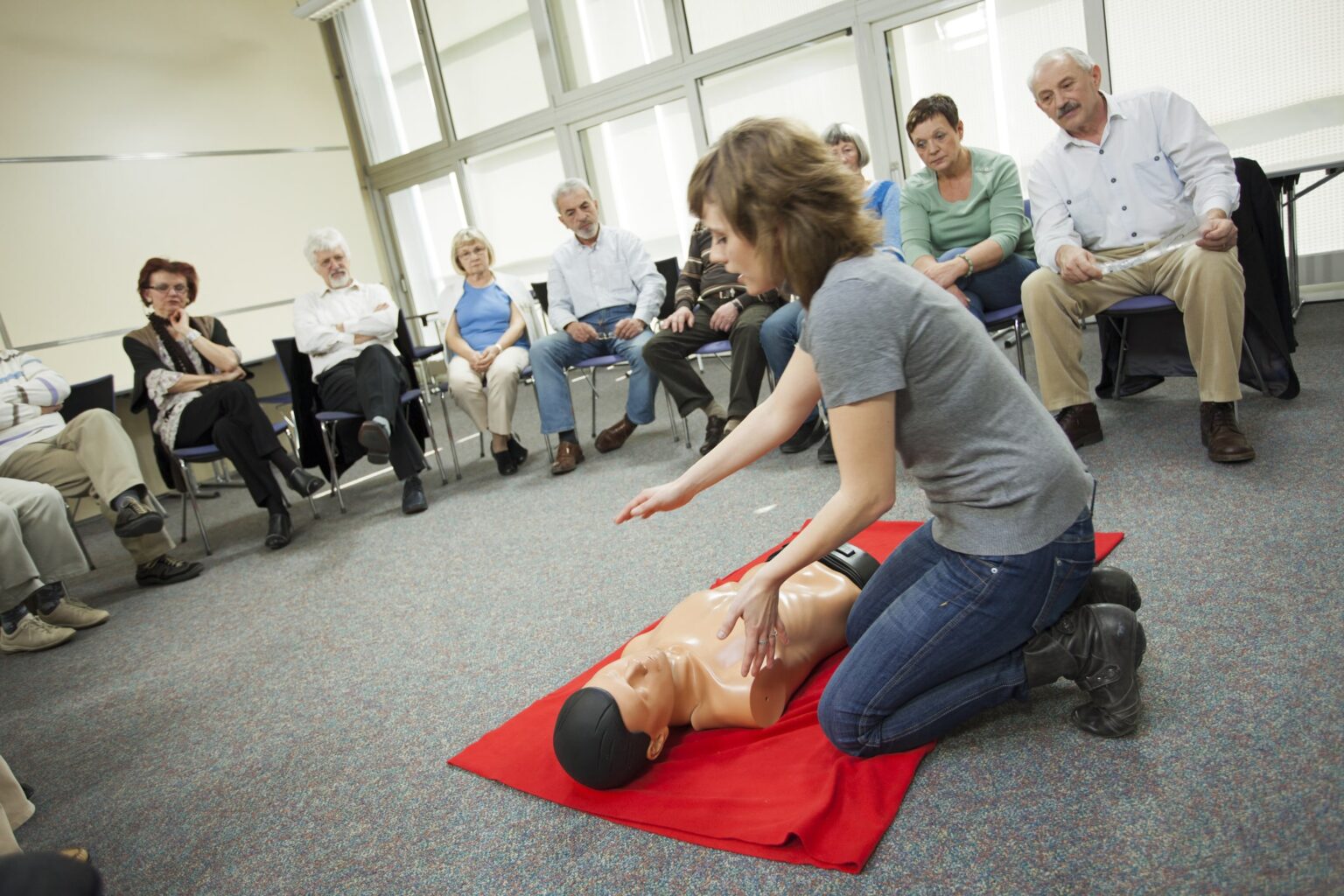American Heart Association© Group CPR Discount Classes in Palo Alto

About Group CPR Discount Classes in Palo Alto
Safety Training Seminars can come out to your place of business at any time on any day of the week to conduct BLS, CPR, and First-aid training courses. Our friendly instructors arrive on time, and bring out all the necessary supplies and equipment to conduct a fun and informative safety training course.
Alternative: If organizing a class at your location is complicated, you can send your staff out to take classes at one of our 57 offices located throughout Northern California.
Ask about Promo Code discounts.
More Information About Group Classes
Empowering Communities: Group CPR Training Classes in Palo Alto
Cardiopulmonary resuscitation (CPR) is a critical life-saving skill that can make a difference in emergencies such as cardiac arrest. In Palo Alto, California, group CPR training classes offer community members the opportunity to learn this vital skill in a supportive and interactive environment. This article explores the importance of group CPR training, the offerings of these classes in Palo Alto, and the impact they have on the community.
The Importance of Group CPR Training
Cardiac arrest can happen to anyone, anywhere, at any time. In such emergencies, immediate CPR can double or even triple a person’s chance of survival. Group CPR training provides individuals with the knowledge and confidence to respond effectively in these situations, potentially saving lives within their families, workplaces, and communities.
Offerings of Group CPR Training Classes in Palo Alto
Group CPR training classes in Palo Alto cater to a diverse audience, including healthcare professionals, teachers, parents, and community members. These classes are typically led by certified instructors who provide hands-on training in CPR techniques, including chest compressions and rescue breaths. Participants also learn how to use automated external defibrillators (AEDs) and how to respond to choking emergencies.
Interactive Learning Experience
Group CPR training classes in Palo Alto are designed to be interactive and engaging. Participants have the opportunity to practice CPR techniques on manikins, receive real-time feedback from instructors, and participate in group discussions and simulations. This hands-on approach helps reinforce learning and builds confidence in participants’ ability to perform CPR in real-life situations.
Impact on the Community
The impact of group CPR training extends beyond individual participants to the community at large. As more people in Palo Alto become trained in CPR, the overall cardiac arrest survival rate in the community increases. Additionally, group CPR training fosters a culture of preparedness and community resilience, where individuals are empowered to take action in emergencies and support one another in times of need.
Community Engagement and Collaboration
Group CPR training classes in Palo Alto often involve collaboration between local organizations, schools, businesses, and healthcare providers. These partnerships help promote the importance of CPR training and make classes more accessible to a wider audience. By working together, the community can create a safer and more prepared environment for everyone.
Conclusion
Group CPR training classes in Palo Alto play a crucial role in empowering individuals to respond effectively to cardiac emergencies. By providing hands-on training and building confidence, these classes contribute to a safer and more resilient community. Through education, collaboration, and community engagement, Palo Alto continues to prioritize the health and well-being of its residents, ensuring that everyone has the skills and knowledge to save lives in emergencies.
FAQs
Who should attend group CPR training classes in Palo Alto?
Group CPR training classes are suitable for anyone interested in learning life-saving skills, including parents, teachers, caregivers, healthcare professionals, and members of the general public.
How long do group CPR training classes typically last?
Group CPR training classes usually span a few hours, depending on the training provider and the depth of instruction. Classes typically include a combination of theoretical instruction, hands-on practice, and skill demonstrations.
Is there a renewal requirement for group CPR training certification?
Yes, CPR certifications are typically valid for two years, after which individuals are required to undergo renewal courses to maintain their certification. Renewal courses often include updates on guidelines and protocols, as well as opportunities to refresh and practice essential skills. Renewing CPR certification ensures that individuals stay current with the latest best practices in CPR and are prepared to respond confidently to emergencies.
